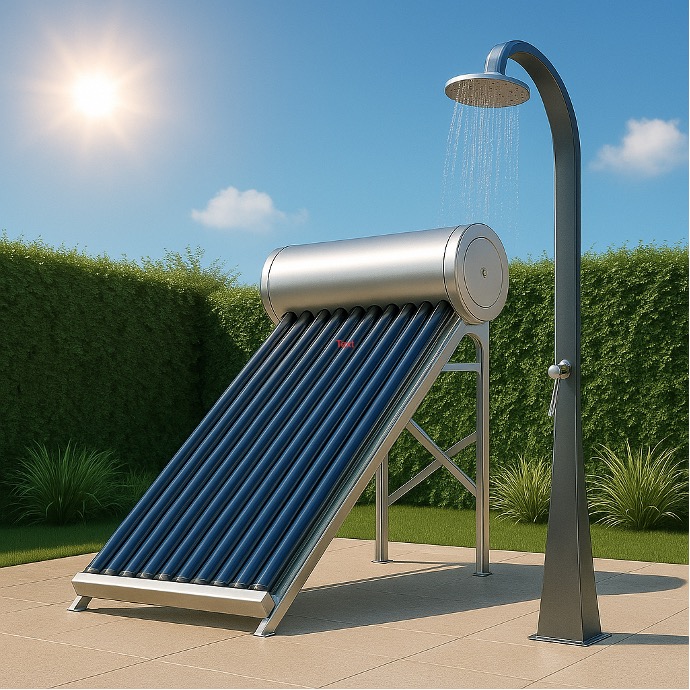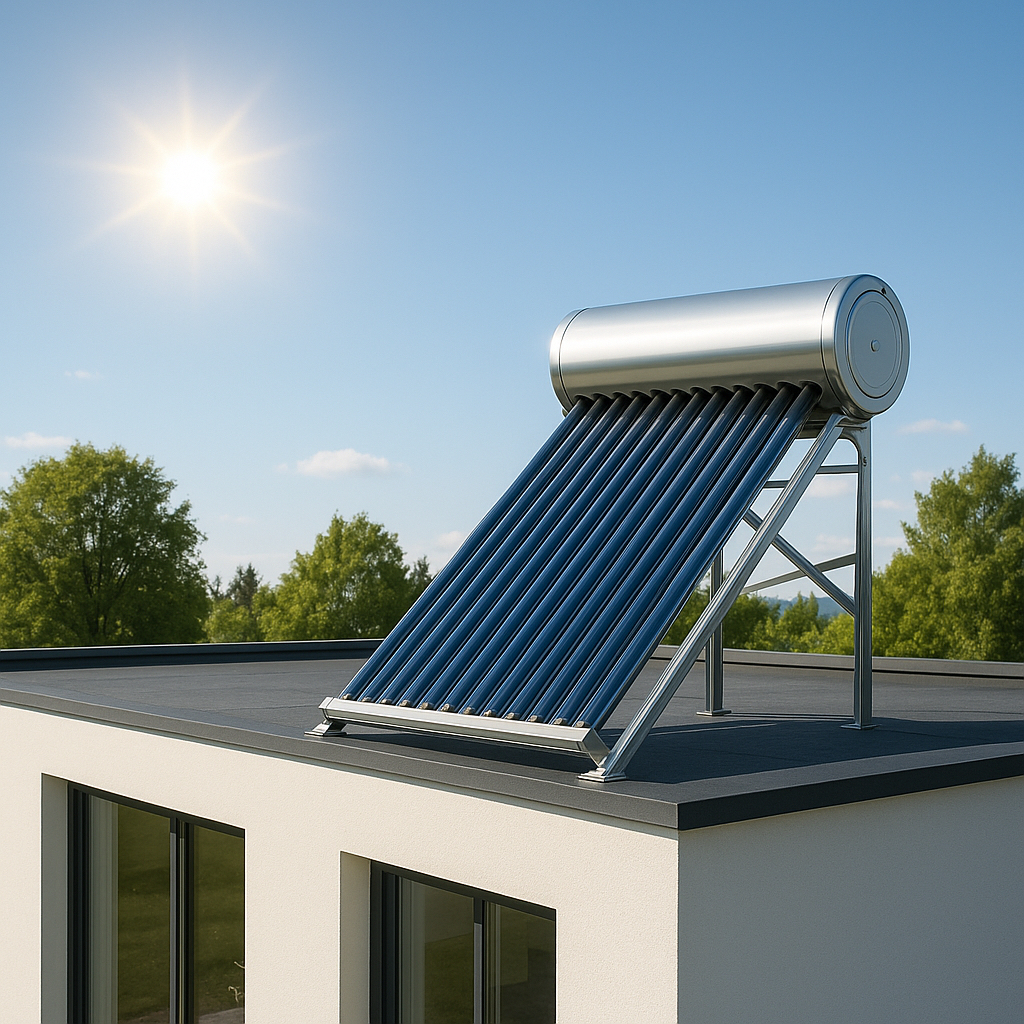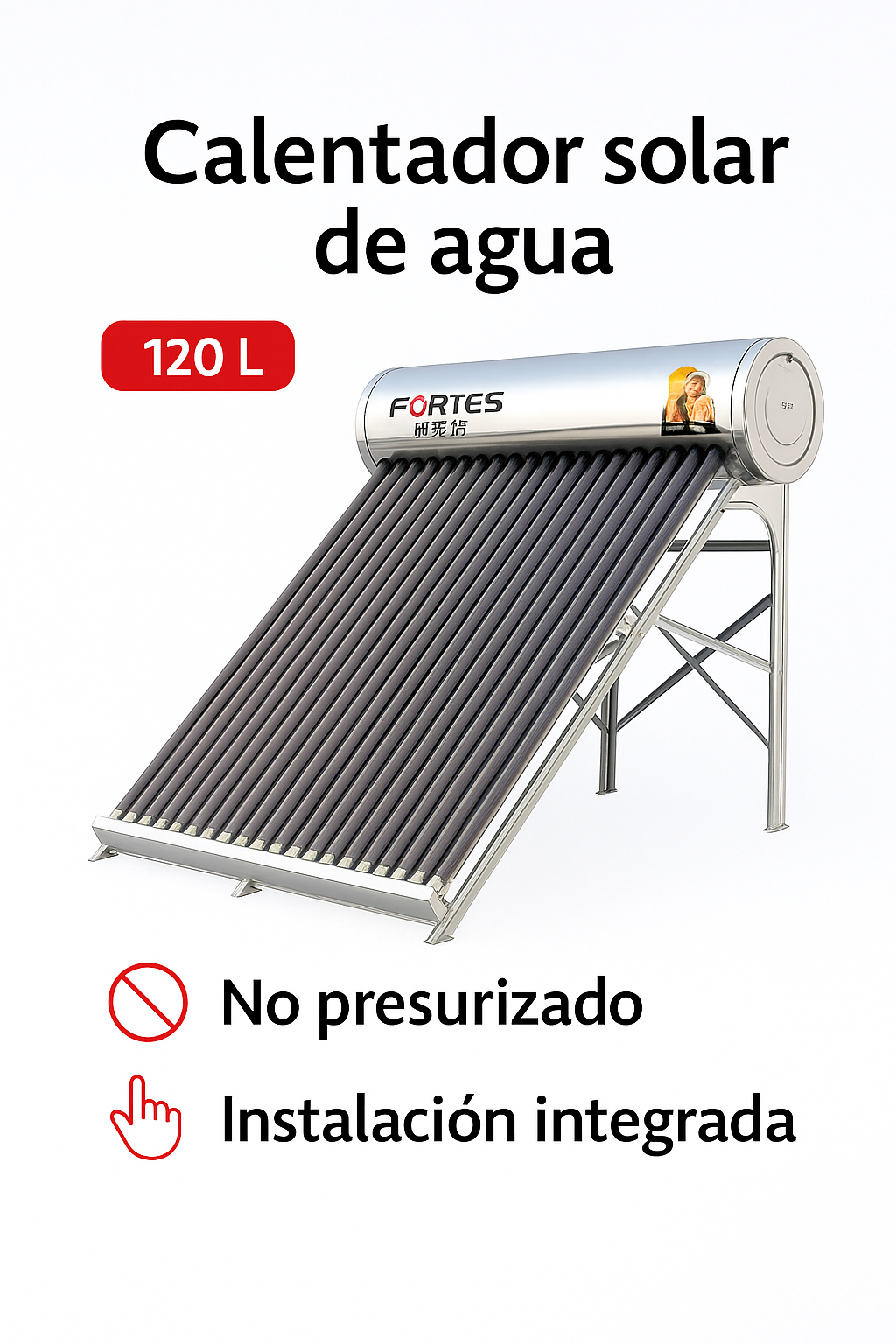This e-shop uses only functional cookies and is unable to function without them.
Differences Between Pressurized and Non-Pressurized Solar Water Heaters
Differences Between Pressurized and Non-Pressurized Solar Water Heaters
The use of solar water heaters has become an efficient, eco-friendly, and cost-effective solution for households and businesses. However, when choosing a system, it is important to understand the difference between a pressurized and a non-pressurized solar water heater, since each one is designed for specific conditions and needs.
Non-Pressurized Solar Heaters
These are the most common and economical.
· Operation: They work by gravity. The tank must be placed higher than the point of use (shower, sink, etc.) so that the water can flow.
· Advantages:
o Low initial investment cost.
o Easy to install and maintain.
o Ideal for warm climates and single-story homes.
· Limitations:
o Depend on height to generate pressure.
o Not recommended for multi-story buildings.
o Hot water may lose temperature if proper insulation is not used.
Pressurized Solar Heaters
These are more modern and versatile systems.
· Operation: The tank is designed to withstand pressure, allowing water to flow with consistent force throughout the installation, regardless of height.
· Advantages:
o Hot water with constant pressure, similar to an electric or gas heater.
o Compatible with water pumps and pressurized systems for the entire house.
o Better performance in cold climates or multi-story homes.
· Limitations:
o Higher initial investment cost.
o Require more technical installation.
Which One to Choose?
· If you are looking for an economical option and your home is single-story, a non-pressurized heater may be sufficient.
· If you need hot water with good pressure, live in a multi-story home, or want to integrate the system with a water pump, the best choice is a pressurized heater.
In summary:
· Non-pressurized systems are perfect for those seeking initial savings and simplicity.
· Pressurized systems are the best option when comfort, stable pressure, and installation versatility are needed.
GANGA Team






Comments
Discussion is empty.